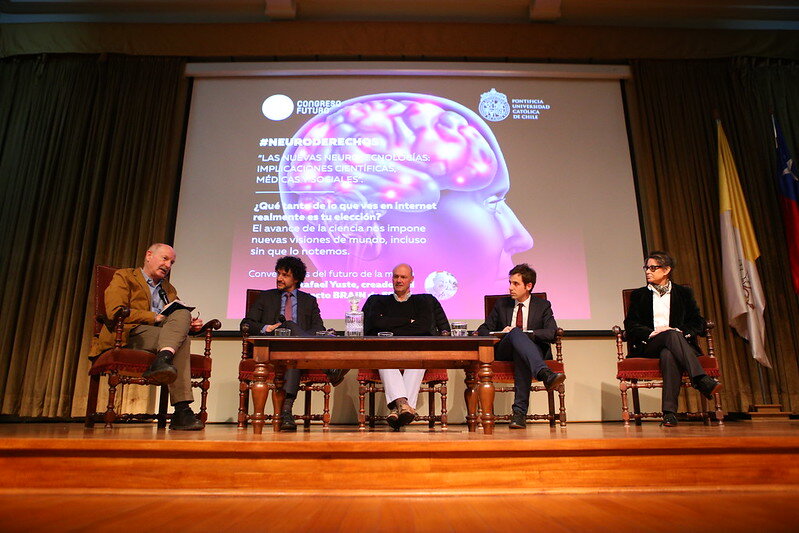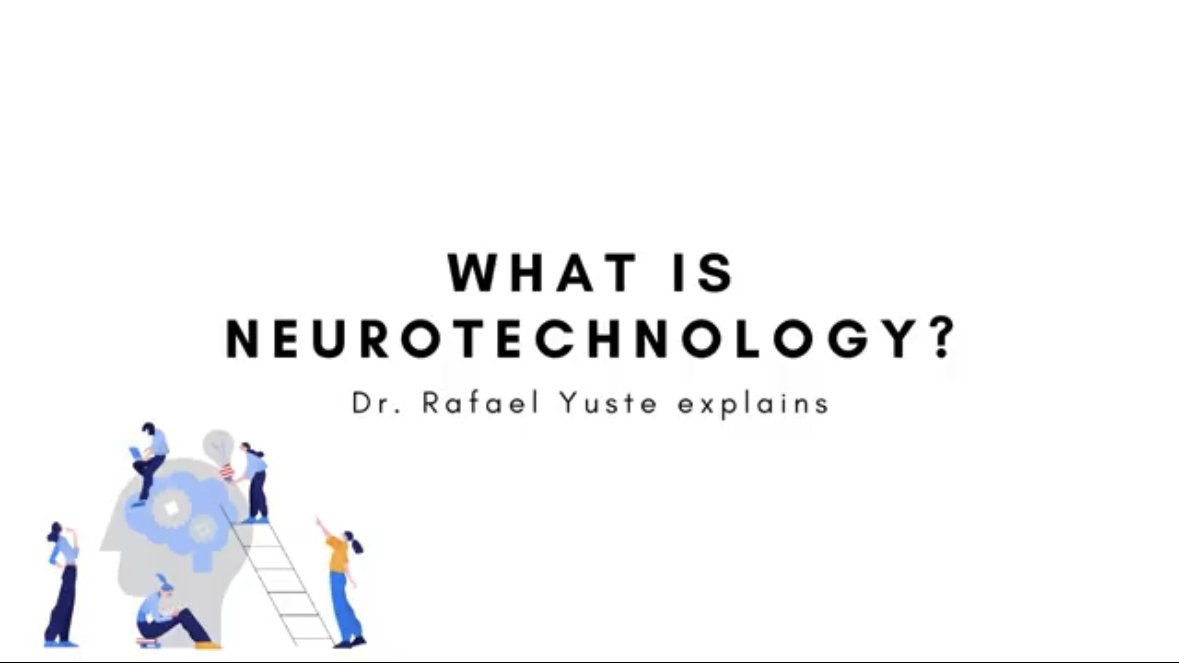
Video Gallery
-

What is Neurotechnology? By Dr. Rafael Yuste
In this short video, Dr. Rafael Yuste gives a concise crash course on neurotechnology and why ethical regulations matter.
-

Tällberg Foundation: Rafael Yuste - a neuroscientist exploring the ethics of neural identity
This is a video from the Tallberg Foundation in which Rafael Yuste talks about the importance of the ethics surrounding the advancement of neurotechnology and AI fields.
-

Experts Call for Ethics Rules to Protect Privacy, Free Will as Brain Implants and AI Merge
The convergence of artificial intelligence and brain-computer interfaces may soon restore sight to the blind, allow the paralyzed to move robotic limbs and cure any number of brain and nervous system disorders. But without regulation, this flurry of innovation spells trouble for humanity, warns a team of researchers led by Columbia University neuroscientist Rafael Yuste and University of Washington bioethicist Sara Goering.
-

The novel neurotechnologies: impact in science, medicine, and society
In this plenary session, Rafael Yuste discusses novel neurotechnologies. "People say it's just too complicated (to understand the brain)," says Yuste. "We do have methods that allow us to see the entire activity of the brain, but not enough resolution of a single neuron. I believe we don't have the right method yet. We need to be able to record from inside the neuron and capture every single spike in every neuron in brain circuits."
-

Cutting Edge: Stealing thoughts from our head - exploring neurorights
What if technology had the right to our thoughts in the future? What if our own minds could be hacked? Two notable minds in neurotechnology link their expertise to discuss whether technology is inherently unethical, and what rights we have to protect our minds now and in the future.
-

Rafael Yuste and Jared Genser about Neurorights on The New Thinking for a New World Podcast
Episode: Are your thoughts safe?
Neuroscientists today know more about how the brain works than ever before; unlocking the brain’s potential could transform our world. Achieving what from today’s perspective would be superhuman cognition, could open whole new worlds of medicine, science, technology, and even humanity. But it could also be abused, with nightmarish consequences.
-

Biological and Medical Impact of Social Media
Recorded Livestream of the Symposium on Biological and Medical Impacts of Social media held on July 13th 2021